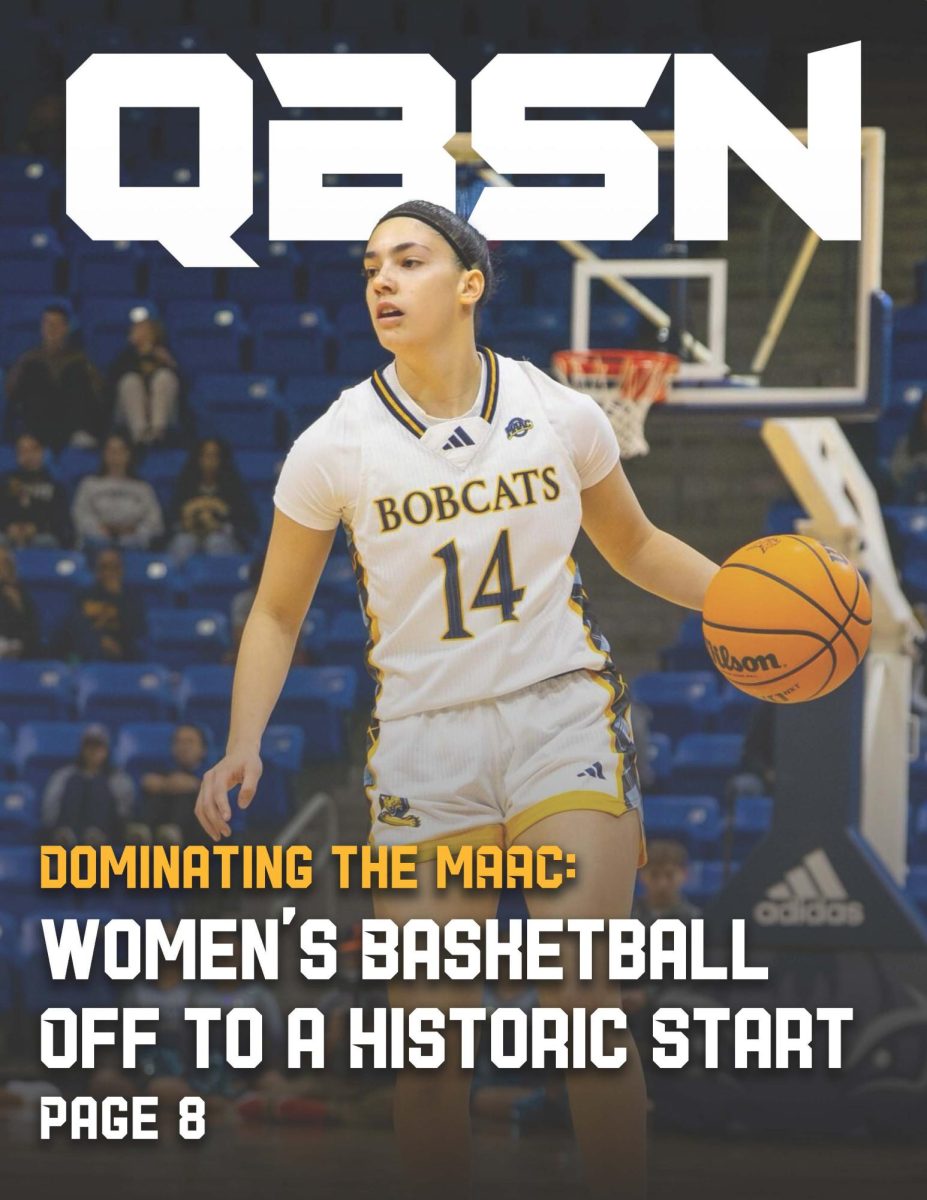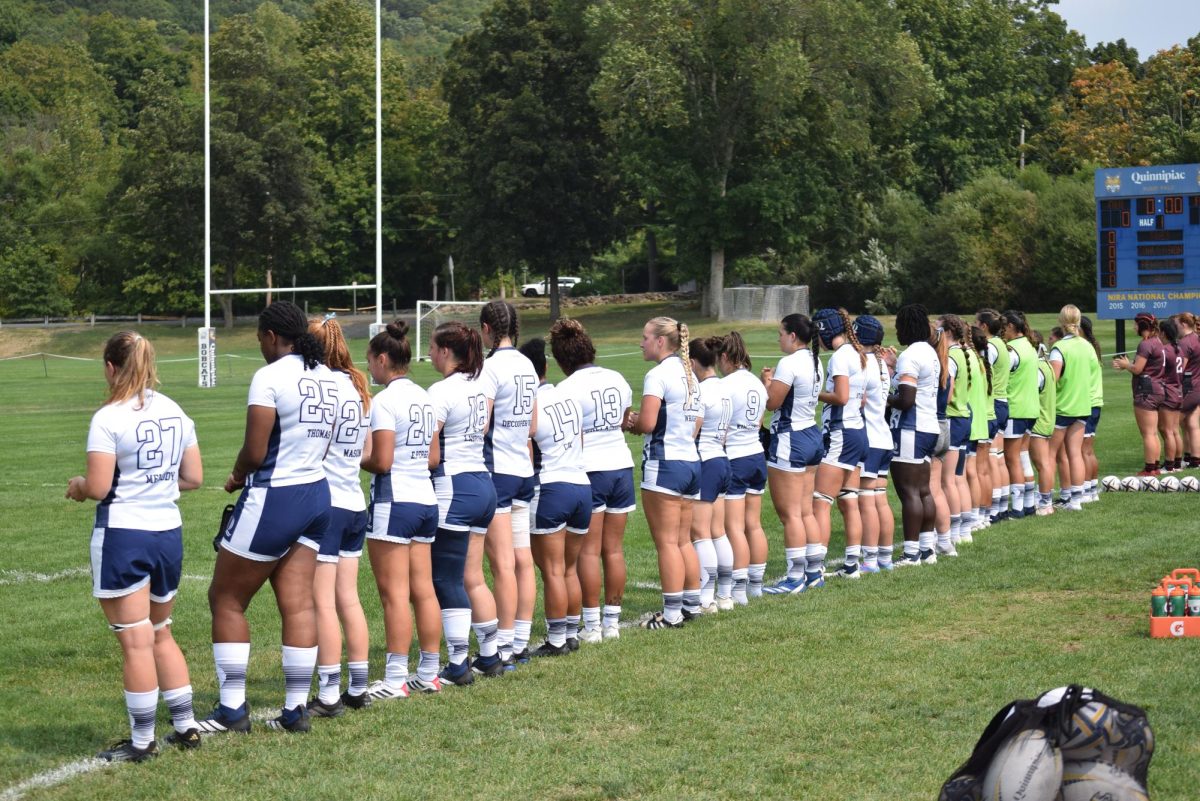A legal expert shares her insight on the extent of Quinnipiac’s Title IX lawsuit, what the university could have avoided and what’s next
There are less than seven months left. Seven months to break ground on an indoor track and field facility. Seven months to construct permanent locker rooms.
On June 30, 2016, the consent decree that Quinnipiac University agreed to in 2013 will no longer be in effect. This means the university has less than seven months to accomplish the agreed upon provisions outlined in the consent decree that finally settled the Title IX lawsuit the school had been facing since 2009.
Members of the women’s volleyball team filed suit against the university after it announced plans to cut the program. The court ruled in favor of the team, citing a violation of Title IX, the federal law that says women must have the same number of educational opportunities as men.
However, the university’s inability to get the town of Hamden’s permission to upgrade the fields on campus is part of what is holding things up.
The Hamden Inland Wetlands Commission gave the university approval to build the new fields in January 2015 and, according to Quinnipiac’s Executive Vice President and Provost Mark Thompson, the school intends to present new plans for the project to the Hamden Planning and Zoning Commission in December.
How strictly the June 30, 2016, deadline will be enforced depends on the referee—Jeffrey Orleans—a lawyer who helped draft the Title IX law in 1972.
Dr. Linda Carpenter, a Title IX expert who has written multiple books on the law, shared her insight on Quinnipiac’s progress with the case.
“It will depend on how strongly [Orleans] wants to move forward, and how much he really trusts that Quinnipiac is moving forward,” Carpenter said. “I don’t think he’s somebody that’s easy to fool, and I think he’s been experienced enough that he recognizes when they say they’re making progress but no progress is really being made.”
Essentially, Carpenter said, the plaintiffs’ lawyers have the power to determine how closely the consent decree is enforced. They can enforce it strictly, but it doesn’t necessarily mean the university will automatically be penalized if it misses a deadline.
Kristen Galles, one of the lawyers for the volleyball players, said she and her counsel are aware of the issues Quinnipiac has been running into with Hamden.
“We understand that Quinnipiac is working on the facilities issues but is running into obstacles with the [town],” Galles said in an email. “We hope those are promptly resolved. If [Quinnipiac] is unable to build them by the dates in the decree, we hope to work with [Quinnipiac] to compensate the female athletes in other ways—such as providing them with other varsity benefits—until the facilities are done.”
Carpenter also described Quinnipiac’s consent decree as highly unusual.
“This is more detailed and more stringent [than most consent decrees],” she said. “This has more specific details and much more of a ‘we’re really watching you’ kind of thing.”
The cost would be high for the plaintiffs to take Quinnipiac back to court—but based on Orleans’ most recent report to the court in July, that may not be necessary. He wrote, “I believe that Quinnipiac has continued to progress in operating its athletics program gender-equitably and accountably, as the Decree requires, and that specific actions taken during this year, and that will be undertaken this summer, will provide for further substantial change beginning with the 2015-16 academic year this fall.” Orleans, a neutral referee, would not comment for this report.
Carpenter acknowledged the high cost of meeting the requirements. However, she said, the entire cost of the lawsuit plus the upgrades was unnecessary.
“If you add up what they spent by—from my point of view—not doing what they should have been doing from the beginning, it has cost them a whole lot more in the end,” Carpenter said. “Why Quinnipiac took it that far I don’t know, because they could have stopped it in a flash and saved themselves a lot of money.
“Quinnipiac turned this into a big deal when they shouldn’t have.”
Carpenter compared Quinnipiac’s case to a 1992 lawsuit at Brown University when members of the women’s gymnastics team successfully sued the school after it eliminated the program.
“The stubbornness on the part of the administration sort of matches what Brown did, except that Quinnipiac’s violations seem so much more obvious,” Carpenter said.
This stubbornness didn’t come cheap.
“This is big bucks that they’re spending that they wouldn’t have to spend,” Carpenter said. “I think sometimes administrations dig their heels in and [think] they are just going to win the case no matter what the cost. And then sometimes they don’t win… then it’s really very expensive.”
Contributing: Rebecca Castagna
[pdf-embedder url=”https://theqbsn.com/wp-content/uploads/2015/12/Title-IX-online.pdf”]





















